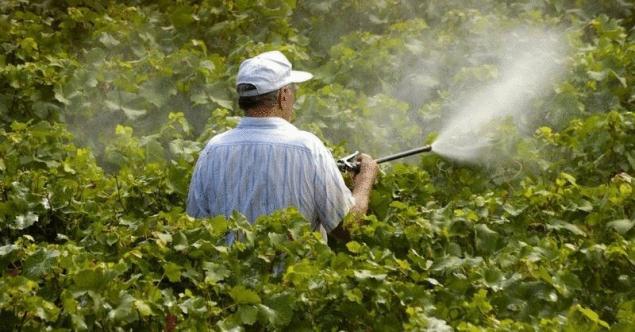400
Pesticides descendants or what is contained in modern foods
Pesticide exposure leads to disease over four generations.
The impact of pesticides on humans can occur not only from the man himself, but in three or more subsequent generations of his heirs, according to a study conducted by Washington State University and published in the journal PLOS ONE.
The researchers drew attention to the effects of Methoxychlor (C16H15Cl3O2), a widely used insecticide in the recent past, but banned in the US about ten years ago.

"What your great-grandmother during pregnancy were exposed to, for example, the pesticide Methoxychlor may lead to a significant increase in your susceptibility to certain diseases, and will you give it to your grandchildren even in the absence of repeated exposure," says researcher Michael Skinner.
The risk grows with each generation
Researchers are working on lab rats with Methoxychlor at doses calculated as an average high dose in humans. They found that in each successive generation until the 4th (great-great-grandchildren infected rats) increased the risk of diseases of the ovaries, kidney diseases and obesity.
Metoxichlor is still used in Mexico and many South American countries and can get caught out in the imported products.
Previous research of Skinner and others have found epigenetic effects lasting up to the 6th generation associated with many chemicals, including plastics, pesticides, dioxins, hydrocarbons such as benzene, polychlorinated biphenyls, DDT, bisphenol a (BPA) and even the popular means of insect control chemical DEET.
Not all studies were conducted on animals. In 2007, was discovered transgenerational effects in the descendants of men exposed to DDT.
Source: agracultura.org/
The impact of pesticides on humans can occur not only from the man himself, but in three or more subsequent generations of his heirs, according to a study conducted by Washington State University and published in the journal PLOS ONE.
The researchers drew attention to the effects of Methoxychlor (C16H15Cl3O2), a widely used insecticide in the recent past, but banned in the US about ten years ago.

"What your great-grandmother during pregnancy were exposed to, for example, the pesticide Methoxychlor may lead to a significant increase in your susceptibility to certain diseases, and will you give it to your grandchildren even in the absence of repeated exposure," says researcher Michael Skinner.
The risk grows with each generation
Researchers are working on lab rats with Methoxychlor at doses calculated as an average high dose in humans. They found that in each successive generation until the 4th (great-great-grandchildren infected rats) increased the risk of diseases of the ovaries, kidney diseases and obesity.
Metoxichlor is still used in Mexico and many South American countries and can get caught out in the imported products.
Previous research of Skinner and others have found epigenetic effects lasting up to the 6th generation associated with many chemicals, including plastics, pesticides, dioxins, hydrocarbons such as benzene, polychlorinated biphenyls, DDT, bisphenol a (BPA) and even the popular means of insect control chemical DEET.
Not all studies were conducted on animals. In 2007, was discovered transgenerational effects in the descendants of men exposed to DDT.
Source: agracultura.org/























